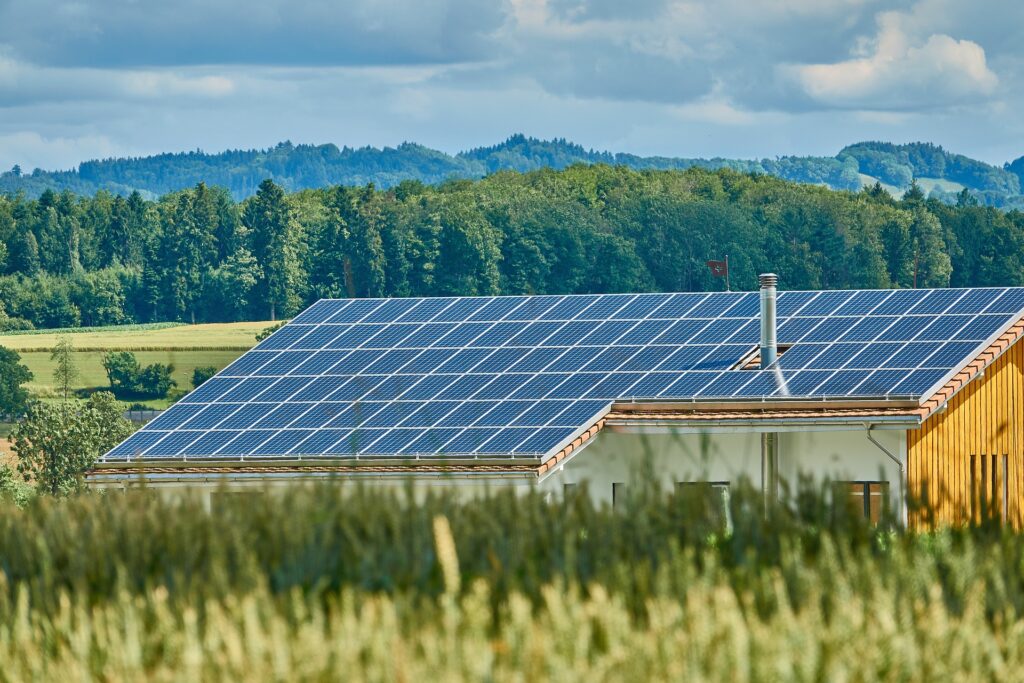Why is solar power good for the environment? This question deserves to be raised and discussed already due to its extreme importance, as the use of solar energy is of great benefit to the environment. Below we review how this can happen, and what is the importance of solar energy for preserving the environment.
Why is solar power good for the environment?
I asked a solar energy specialist: Why is solar power good for the environment? And I asked him to tell me a little about that, and he told me: The use of solar energy systems is of great benefit to the environment and the individual as well. I’m going to show you how. Let me start by making that clear.

How does solar energy impact the environment?
The environmental benefits of using solar energy panels lie in three items, What are the 3 positives about solar energy?
Solar panels are clean, renewable and emissions-free
Electricity generated by burning fossil fuels, including coal and natural gas, produces a lot of harmful emissions and carbon gasses. While the use of solar energy and renewable resources, including wind and water energy, does not result in any carbon emissions or environmental pollutants.
The extraction of fossil fuels is costly, while sunlight is free and readily available.
Solar energy fights global warming
Given that solar panels reduce greenhouse gasses and carbon dioxide (CO2) to a large extent, which results from burning fossil fuels, which reduces the rise in global temperatures and climate changes, and thus reduces forest fires that occur in the west and major storms that occur in the east.
Benefits of local air quality
The biggest benefit of using solar energy is that it reduces air pollution, according to the National Renewable Energy Laboratory (NREL) after its analysis: the use of solar panels significantly could reduce nitrous oxides, sulfur dioxide, and particulate matter emissions significantly. Which may cause health problems including cases of chronic bronchitis, and respiratory and cardiovascular problems.
positive impacts of solar energy
Solar energy is a renewable source of energy, so it cannot run out with use and is of great importance in reducing greenhouse gas emissions, which helps reduce climate change, and thus protect humans, wildlife and ecosystems. Solar energy also contributes to improving air quality and reducing water use when manufacturing or producing energy panels.
What are the 2 biggest advantages of using solar energy?
The most prominent advantage of using solar energy is that it is available throughout the year, even on cloudy days, and even with little yield. It is also environmentally friendly, as it does not cause pollution because it reduces dependence on oil and fossil fuels.
What are the 2 positive effects of solar energy on the environment?
The use of solar energy to generate electricity around the globe has several environmental benefits, the most prominent of which are on the environment: reducing carbon emissions that cause global warming, and preserving precious water wealth.
How do solar panels help climate change?
The use of solar panels helps to treat the problem of global warming, as relying on them to produce electricity prevents the burning of more fossil fuels that cause the emission of greenhouse gases.
How does solar energy reduce pollution?
The use of solar panels helps in generating a lot of energy without any kind of harmful emissions and gases resulting from burning fossil fuels. So the more homes and businesses that use solar energy, the less air pollution will be.
How should we use solar energy to protect the environment?
The most important benefits of solar energy on the environment are five What are the 5 advantages of solar energy?
- Reduce water use.
- Reduce climate change.
- Reducing the percentage of carbon emitted from your home.
- Reducing our dependence on fossil fuels.
- Fighting global warming.
Is solar energy free from pollution?
The use of solar power plants to generate electricity does not generate any gases or emissions when operating and therefore does not cause any air pollution. Which has an indirect positive impact on the environment compared to other energy sources.
How is solar energy sustainable?
The use of solar energy does not result in waste or pollution of water or air. This is reflected positively, especially in light of the depletion of water resources and the exacerbation of global warming. While this happens when fossil fuels and nuclear power plants are used to generate electricity, solar energy is therefore key to conserving hydrological resources.
In short, solar energy is one of the energy sources that are of great benefit to people and the environment, and its benefits are summarized in ten items.
What are the 10 benefits of solar energy?
The benefits of solar energy to the individual and the environment are:
- It greatly reduces your electric energy bills.
- Easy to install solar.
- Maintenance costs are acceptable.
- Reduces air pollution.
- Improved energy security and independence.
- Reduce water consumption.
- Reduce fossil fuel consumption.
- Combating global warming.
- They are available throughout the year, even on floating days, albeit by a small percentage.
- Solar energy is renewable and does not run out of oil and fossil fuels.
Disadvantages of solar energy to the environment
The disadvantages of using solar energy are manifested in points that are not seen compared to the positives, namely:
- The initial cost of equipment, including batteries, is very expensive.
- Low supply in winter and cloudy days as it may be cut off.
- Supply interruption at night hours.
- Long-term solar energy.
long term of solar energy
The process of manufacturing and disposing of solar panels can result in harmful emissions to the environment as it pollutes the air and consumes a lot of agricultural land and water. But it depends on the technologies used and waste management recycling.
But if we were to look at the negatives and discuss them with the positives, what are the 5 pros and cons of solar energy?
Positive and negative impacts of solar energy
The pros and cons of solar energy lie in the following items:
- High initial costs, including the price of equipment, especially batteries.
- Environmentally friendly as it reduces air and water pollution.
- Reduce fossil fuel depletion.
- Fighting global warming.
- Reduce water drain.
In short, when you ask Why is solar power good for the environment? The answer will be short: reduce the wealth consumption of fuel and water, and reduce air pollution.
